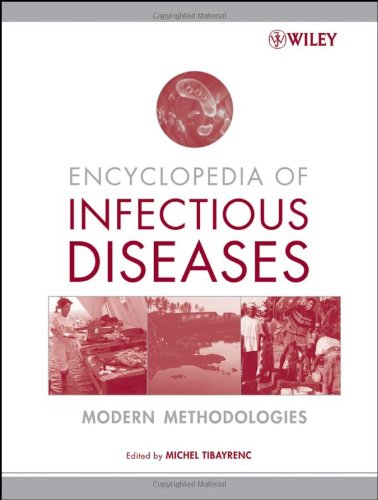

Most ebook files are in PDF format, so you can easily read them using various software such as Foxit Reader or directly on the Google Chrome browser.
Some ebook files are released by publishers in other formats such as .awz, .mobi, .epub, .fb2, etc. You may need to install specific software to read these formats on mobile/PC, such as Calibre.
Please read the tutorial at this link: https://ebookbell.com/faq
We offer FREE conversion to the popular formats you request; however, this may take some time. Therefore, right after payment, please email us, and we will try to provide the service as quickly as possible.
For some exceptional file formats or broken links (if any), please refrain from opening any disputes. Instead, email us first, and we will try to assist within a maximum of 6 hours.
EbookBell Team

5.0
68 reviewsThe Encyclopedia of Infectious Diseases is organized into five parts. The first part examines current threats such as AIDS, malaria, SARS, and influenza. The second part addresses the evolution of pathogens and the relationship between human genetic diversity and the spread of infectious diseases. The next two parts highlight the most promising uses of molecular identification, vector control, satellite detection, surveillance, modeling, and high-throughput technologies. The final part explores specialized topics of current concern, including bioterrorism, world market and infectious diseases, and antibiotics for public health.
Each article is written by one or more leading experts in the field of infectious diseases. These experts place all the latest findings from various disciplines in context, helping readers understand what is currently known, what the next generation of breakthroughs is likely to be, and where more research is needed. Several features facilitate research and deepen readers' understanding of infectious diseases:
Lists of Web resources serve as a gateway to important research centers, government agencies, and other sources of information from around the world
Information boxes highlight basic principles and specialized terminology
International contributions offer perspectives on how infectious diseases are viewed by different cultures
A special chapter discusses the representation of infectious diseases in art
With its multidisciplinary approach, this encyclopedia helps point researchers in new promising directions and helps health professionals better understand the nature and treatment of infectious diseases.